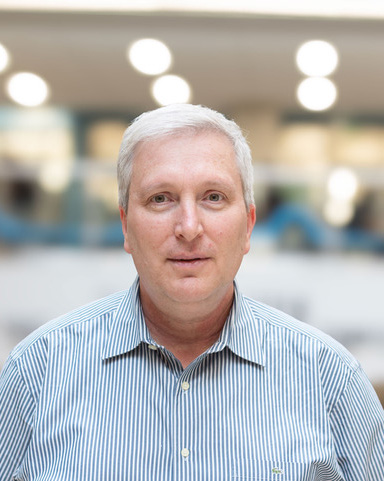In This Story
Alex Sprintson, an accomplished professor and researcher, has been named the new chair of the Department of Electrical and Computer Engineering (ECE) at George Mason University. With an extensive background spanning academia, industry, and government agencies, Sprintson brings a wealth of experience and ideas for how to prepare the next generation of graduates for the role.
Sprintson received all of his degrees from Technion–Israel Institute of Technology and has spent his career conducting research on a variety of emerging technologies, receiving grants and awards from the Air Force Research Lab, the National Science Foundation, including a CAREER award, the Defense Advanced Research Projects Agency (DARPA), and more.

“My early research centered on communication networks,” he explains. “In recent years, my work has shifted toward secure computation, private information retrieval, and privacy challenges in 6G.”
Sprintson has brought his talents to Texas A&M as a professor, the National Science Foundation as a program director, and, most recently, at Nokia Bell Labs, conducting network security research. Among his career highlights, Sprintson cites his leadership in the $40 million NSF Resilient & Intelligent NextG Systems (RINGS) program. "We awarded more than 40 projects on all aspects of next-generation technology," he says. "It helped advance national interests in 6G research and informed standards development."
Like the emerging challenges of 6G networks, Sprintson is well aware of the evolving demands ECE graduates will encounter in the job market and has clear aspirations for how to address them with his department.
“Artificial intelligence has had an impact on the job market for our graduates,” he says. “So we need to adjust to prepare them to find jobs or conduct research.”
His ideas include exposing students to artificial intelligence earlier in their academic careers, increasing research opportunities for both undergraduate and graduate students, and encouraging undergraduate students to potentially pursue graduate degrees to give them a competitive edge. "The ability to do research is invaluable," says Sprintson. "Even if they don’t pursue research careers, it equips them for leadership roles and innovation."
Sprintson is also already seeking new partnerships for the department to bring top-tier graduates to fields that meet the needs of Virginia. “There are big semiconductor and data center industries in Virginia, and those companies need engineers,” he says. Similarly, he flags that Virginia needs engineers who can work on power systems and support power grid solutions.
And Sprintson knows that his department is up to the challenge. “Our department has amazing faculty," he says. "It’s a very collegial department where people are excited about service and contributions. We’re strategically focusing on areas that align with Virginia’s economic needs." And he is ready to hit the ground running. “We need to ensure all of our graduates are well-prepared for success.”
